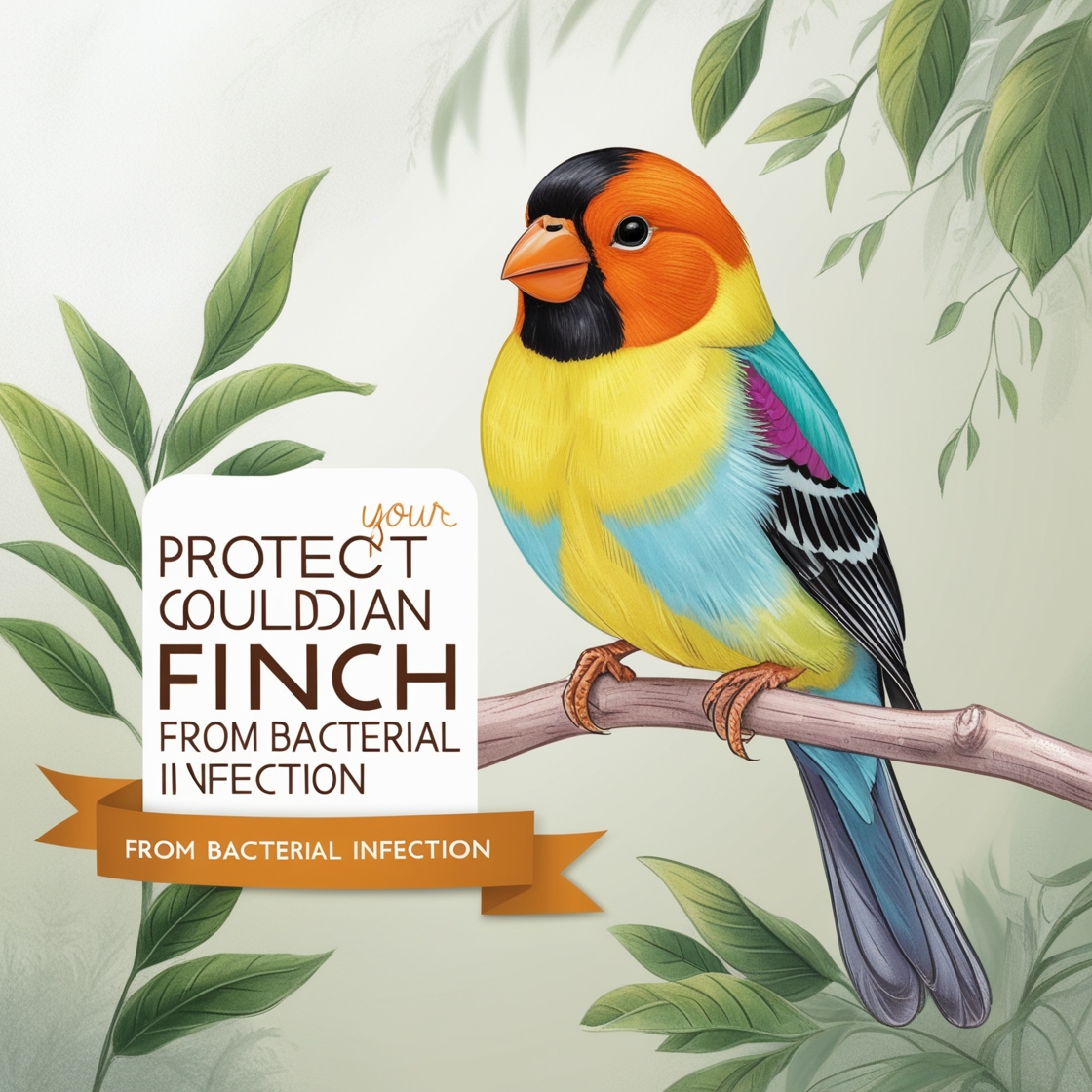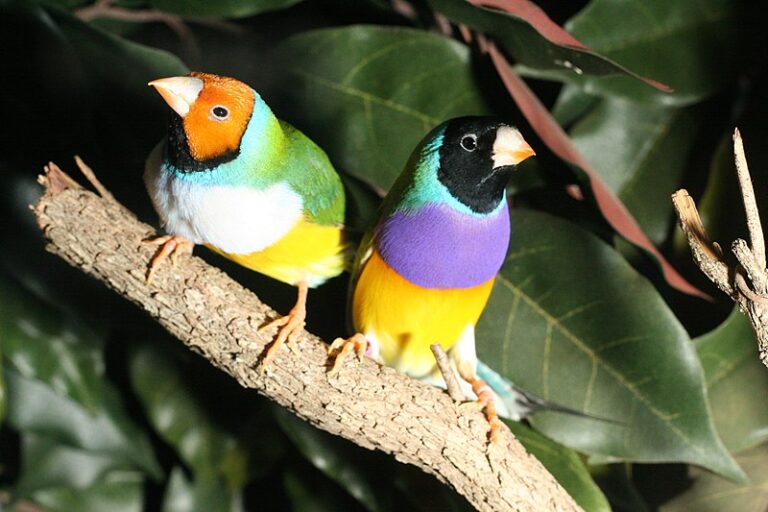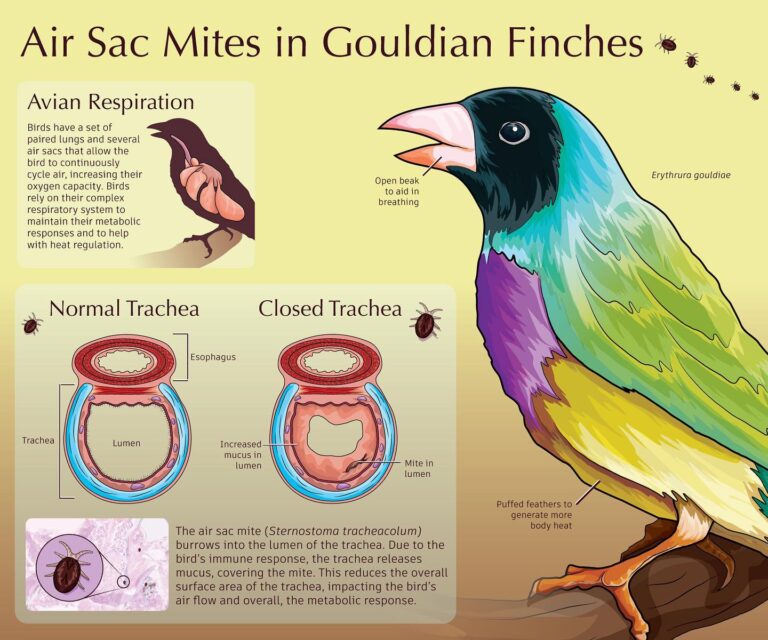How to Protect Your Gouldian Finch From Bacterial Infection
When it comes to the health of your Gouldian Finch, one of the most critical issues is bacterial infection. These small, colorful birds are known for their delicate constitution, which makes them susceptible to a variety of health problems, particularly those caused by bacteria. Understanding the difference between good and bad germs is essential for ensuring the well-being of your feathered friend. In this article, we’ll explore the complexities of bacterial infections in Gouldian Finches and how to strike a balance between beneficial and harmful bacteria.
Understanding Bacterial Infection in Gouldian Finch
Bacterial infections in Gouldian Finches can lead to a range of health issues, from mild symptoms to severe illnesses. These infections are typically caused by harmful bacteria entering the bird’s system through contaminated food, water, or even their environment. Bacterial infections may manifest in various ways, including respiratory issues, digestive problems, and skin conditions.
The most common bacterial infections in Gouldian Finches include infections caused by E. coli, Mycoplasma, and Salmonella. These bacteria can lead to conditions such as enteritis (inflammation of the intestines), respiratory disease, and septicemia, which can be life-threatening if not treated promptly. Recognizing the early signs of bacterial infection in your bird is crucial to prevent further complications.
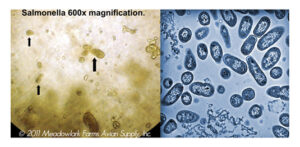
Symptoms of Bacterial Infections in Gouldian Finches
One of the most challenging aspects of diagnosing bacterial infections in Gouldian Finches is that the symptoms can often be vague or resemble other illnesses. However, there are some key signs to watch for that may indicate a bacterial infection:
- Lethargy: A sick Gouldian Finch may seem less active than usual.
- Loss of Appetite: A reduction in food intake could signal digestive issues.
- Labored Breathing: Respiratory problems are common with bacterial infections.
- Diarrhea: Digestive disturbances can lead to loose, watery stools.
- Swollen or Discolored Eyes: Eye infections are often a visible sign of bacterial involvement.
- Fluffed-Up Feathers: Birds will sometimes puff up their feathers when they’re unwell to conserve heat.
If you observe any of these symptoms in your Gouldian Finch, it’s essential to consult an avian veterinarian immediately. Prompt diagnosis and treatment can often make the difference between recovery and a worsening condition.
Good Germs vs. Bad Germs: The Importance of Balance
When we think of bacteria, we often focus on the harmful types that cause infections and diseases. However, not all bacteria are bad—many play an essential role in maintaining your bird’s health. This balance between good and bad germs is crucial for the overall health of your Gouldian Finch.
The Role of Good Germs
Good bacteria, also known as probiotics, are essential for maintaining a healthy digestive system in Gouldian Finches. These beneficial microorganisms help break down food, absorb nutrients, and protect against harmful bacteria by occupying the gut and creating an environment where pathogens struggle to thrive.
Probiotics are particularly important for birds that have recently undergone antibiotic treatment, as antibiotics often kill both good and bad bacteria indiscriminately. Replenishing the good bacteria helps restore balance to the digestive system and supports overall health.
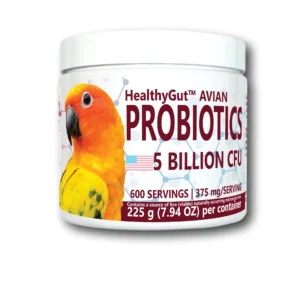
The Dangers of Bad Germs
On the flip side, bad germs are the pathogenic bacteria that can cause infections and illnesses in your Gouldian Finch. These harmful bacteria can invade various systems in the bird’s body, leading to diseases that range from mild to fatal.
In some cases, bad germs may already be present in the bird’s environment but only cause issues when the bird’s immune system is compromised. Stress, poor diet, and unsanitary living conditions can all contribute to a weakened immune system, giving bad germs the upper hand.
Preventing Bacterial Infection in Gouldian Finches
Prevention is always better than cure, especially when it comes to bacterial infections in Gouldian Finches. Here are some essential tips to help you minimize the risk of bacterial infection in your bird:
- Clean Living Environment: Regularly clean your finch’s cage, food dishes, and water containers to prevent bacterial buildup. Use a bird-safe disinfectant to clean perches, toys, and any other items in the cage.
- Proper Diet: Ensure your Gouldian Finch is eating a balanced diet that includes fresh seeds, fruits, and vegetables. A healthy diet helps maintain a robust immune system, which can fight off harmful bacteria.
- Clean Water: Always provide fresh, clean water. Stagnant water is a breeding ground for bacteria, so change it daily.
- Avoid Stress: Stress can weaken your bird’s immune system, making it more susceptible to infections. Ensure your Gouldian Finch has a calm and stable environment, free from unnecessary disturbances.
- Probiotic Supplements: Consider using probiotic supplements to promote the growth of good bacteria in your bird’s gut, especially after a course of antibiotics.
How to Treat Bacterial Infections in Gouldian Finches
If your Gouldian Finch develops a bacterial infection, prompt veterinary care is necessary. An avian vet will likely prescribe antibiotics to eliminate the harmful bacteria. However, as mentioned earlier, antibiotics can disrupt the balance of good bacteria, so it’s essential to follow up with probiotics to restore gut health.
In addition to medication, supportive care may be needed, such as ensuring the bird stays warm, hydrated, and stress-free during recovery. A proper diet and good hygiene practices are also critical during the treatment process.
Bacterial Infection in Gouldian Finch: A Delicate Balance
When it comes to Gouldian Finches, bacterial infections pose a significant risk to their health. However, by understanding the role of both good and bad germs, bird owners can take proactive steps to protect their finches. Ensuring a clean, stress-free environment, offering a well-balanced diet, and maintaining the right balance of good bacteria will go a long way in keeping these beautiful birds healthy and thriving.
Importance of Follow-Up Care
After your Gouldian Finch has been treated for a bacterial infection, follow-up care is essential to ensure a full recovery. This may involve additional veterinary visits, continued medication, and close monitoring of your Finch’s health. Pay attention to any changes in behavior, appetite, or physical condition during the recovery period.
Following the completion of antibiotic treatment, probiotics may be recommended to restore the balance of good bacteria in your Finch’s gut. Continue to provide a clean environment, fresh food, and water, and minimize stress to support your Finch’s recovery. With proper care, your Finch can return to good health and continue to thrive.
Frequently Asked Questions
How can I tell if my Gouldian Finch has a bacterial infection?
Look for signs such as lethargy, labored breathing, loss of appetite, diarrhea, or fluffed-up feathers. If you notice any of these symptoms, consult an avian vet immediately.
Can bacterial infections in Gouldian Finches be treated?
Yes, bacterial infections can be treated with antibiotics prescribed by a vet. However, it’s important to follow the vet’s instructions carefully and consider using probiotics after antibiotic treatment.
What are some common bacteria that cause infections in Gouldian Finches?
Common bacteria include E. coli, Mycoplasma, and Salmonella, which can cause conditions like respiratory infections and enteritis.
How can I prevent bacterial infections in my Gouldian Finch?
Maintaining a clean cage, providing fresh food and water, offering a balanced diet, and minimizing stress are key preventative measures. Consider probiotic supplements to support good gut health.
Can good bacteria help my Gouldian Finch?
Yes, good bacteria are essential for maintaining a healthy digestive system and protecting against harmful pathogens. Probiotics can help ensure your bird’s gut remains balanced, particularly after antibiotic treatment.
Should I use antibiotics if my finch seems sick?
Antibiotics should only be used under the guidance of a vet. Overuse can lead to resistance or negatively affect the bird’s gut flora.
